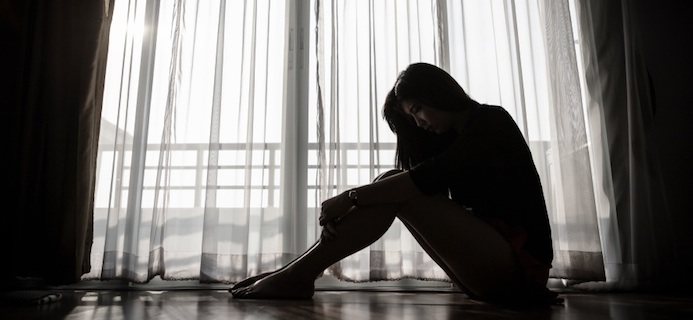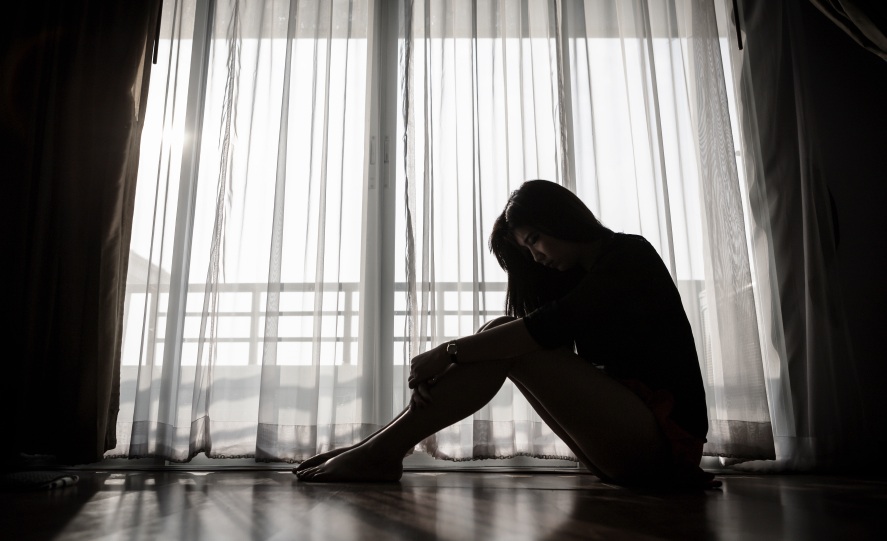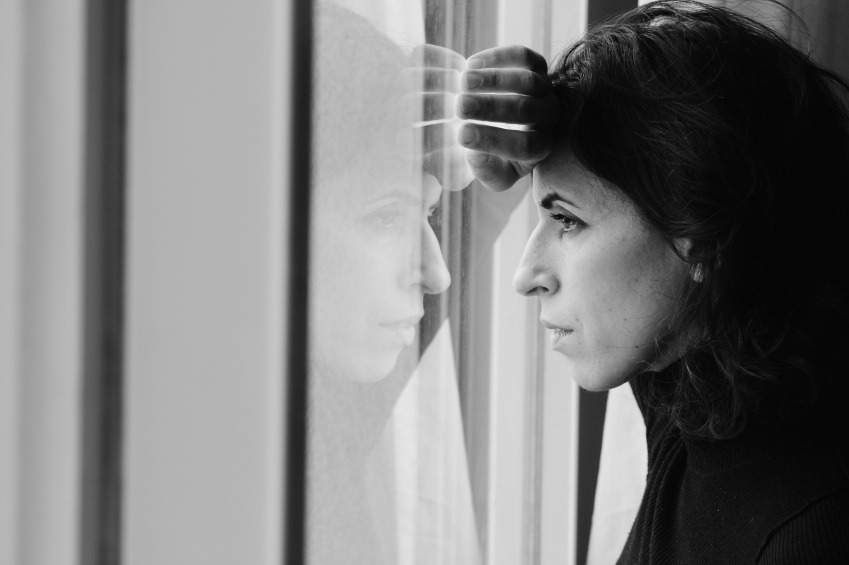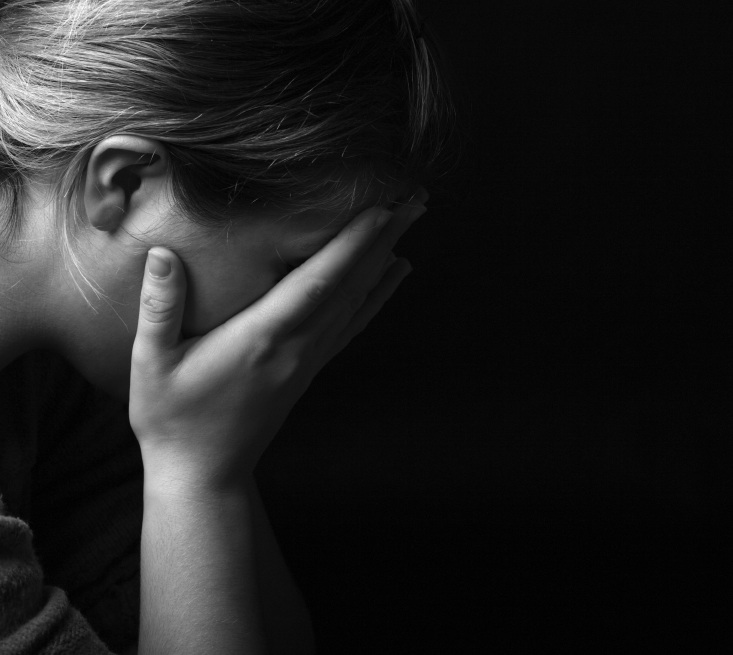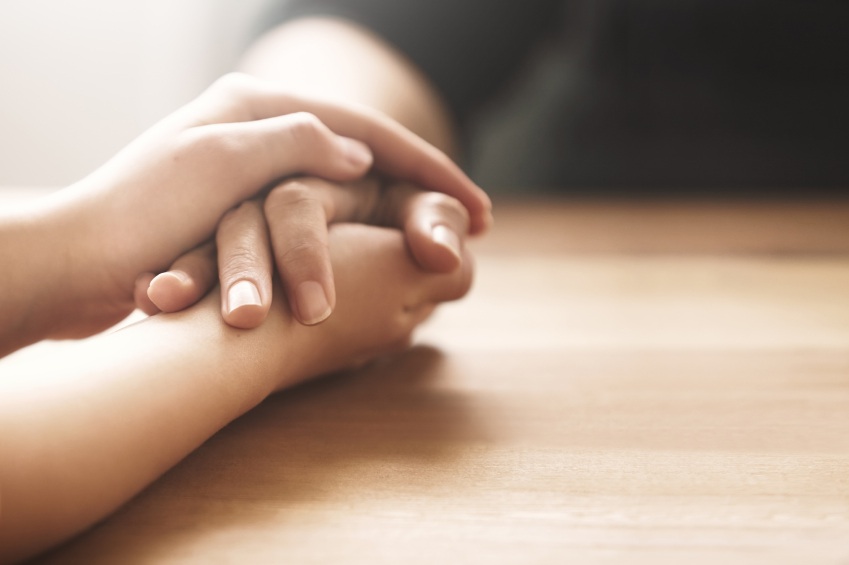Natasha Tracy has bipolar disorder and here discusses how she realised, got a diagnosis and finally found the medication and routine that got her better
When I was a child I always wanted to have sleepovers, like most children I expect. And when my friends came over I would run around like a demon, elated they were there. I would want to stay up all night talking feverishly, long after my friends wanted to go to sleep. In a day I would wear them out and my mother would be near exhaustion.
And then I would beg my friends not to leave because I knew what would happen next. I knew that when they left I would feel down, sad, lonely and depressed. I would mope around the house and cry. It was like their leaving ripped out a part of my heart.
While I was accused of being “overemotional,” no one had even an inkling that what was happening was the beginning of bipolar disorder.
As an adult in university, my unusual moods become much clearer. Sometimes I would be so up that I would write papers overnight, talk so fast that others would laugh out loud while begging me to slow down. I would laugh over nothing until I was gasping for air. In one notable mood I ripped all the clothes from my closet, convinced they would look better scattered around my one-room apartment, and then threw 200 CDs into patterns on the floor I knew were the most brilliant art I had ever seen.
While I was accused of being ‘overemotional,’ no one had even an inkling that what was happening was the beginning of bipolar disorder.
But that wasn’t what led to treatment. What led to treatment were the depressions. The depressions lasted much longer and when I was 20 I experienced the worst of my life where I spent months unable to smile, months unable to laugh, months unable to enjoy anything around me.
I assumed all the tears and sadness were related to school and I thought a vacation in Europe would “fix” me. I ascended the Tour Eiffel, spent time on an island in Greece and lied on the beaches of Spain. But what I found was that I had brought the depression with me. I found myself in hostel bathrooms crying my eyes out just praying that no one would come in and ask me what was wrong, because I had no idea.
I found myself in hostel bathrooms crying my eyes out just praying that no one would come in and ask me what was wrong, because I had no idea.
When I returned to Canada, things got worse. I would cry every day and the pain would be so bad that I was driven to self-mutilate. I would cut my flesh and watch the blood drip and hope that somehow it would lessen the depression nothing seemed to touch.
I would cry every day and the pain would be so bad that I was driven to self-mutilate.
And then one night I started researching my problem. I didn’t know the word “depression,” not like I know it today, but everything I read about it fit my life to a ‘t.’ But I thought there was more to it. That’s when I stumbled over the information on bipolar disorder and I learned the word “hypomania” – a mood that was elevated but less so than mania. I didn’t know such a thing existed but it fit. I had moods where I thought I was a genius and everyone else was slow and stupid for not understanding my brilliance. In these times I wouldn’t sleep, I would ramble endlessly a stream of thoughts, one linked to the next through a process no one could comprehend.
It was as soon as I learned what bipolar really was that I realized I had it.
I felt like my soul had been crushed. Everything I read said that there was no cure and that I would have to take medication for the rest of my life and this felt like it was the end of everything. This felt like the end of life as I had known it.
Shortly after, the next semester of university started and I took my research and conclusions to a counsellor. Using an entire box of Kleenex, I explained the months of suffering, suicidality, self-harm and other symptoms. The counsellor looked straight at me and told me I had to see a psychiatrist.
Seeing a doctor was the last thing I wanted because I knew that he would give me medication and I was terrified of drugs. I was sure that being on medication would make me a drug addict and that I would never be able to think like myself ever again through the haze of chemicals.
I was sure that being on medication would make me a drug addict and that I would never be able to think like myself ever again through the haze of chemicals.
But I was scared. I was scared that I really would take my own life, so I went.
And my nightmares came true when, after a short period of time, my psychiatrist prescribed a medication – the wrong medication for bipolar disorder. He had decided I had minor depression (it takes many years for most women to get diagnosed). I was pretty sure he was wrong but I was so all-consumed with pain that I had not a tiny sliver of energy left to stand up to the doctor, so when he said “minor depression” I just went with it.
That day kicked off two years of medication trials. I had to keep switching medications because I would get so many side effects that I could never get the dose high enough for the drugs to work. Then one day I went off an antidepressant and felt amazing. I felt like my old self was coming back. Everything felt so good again that I thought for sure I was getting better.
I was wrong. Things were feeling too good. I was my old self – my old hypomanic self. It was about two weeks before my suicidal depression came back again.
This medication allowed me to find my smile again. It allowed me to feel joy again. It allowed me to stop wanting death and start wanting life.
It was this reaction that finally led a new psychiatrist to believe I had bipolar disorder. This understanding led to new rounds of medications but this time mood stabilizers. It was finally a mood stabilizer that brought me back from this brink. This medication allowed me to find my smile again. It allowed me to feel joy again. It allowed me to stop wanting death and start wanting life.
Life has not been easy since then. Several times my medication has lost its effectiveness only to see my depression – and suicidal ideation – return. I’ve been hospitalized, I’ve had to take time off work and I’ve even undergone surgery as a result of treatment-resistance.
I am no longer a victim of my own ignorance. Getting a bipolar diagnosis was unimaginably scary, but it was a necessary part of getting better and getting my life back.
But still, things are better now. They are better because I have a full understanding of what is happening to me and I can affect the outcome using medication, therapy, meditation, routines and other coping mechanisms. I am no longer a victim of my own ignorance. Getting a bipolar diagnosis was unimaginably scary, but it was a necessary part of getting better and getting my life back.
MANAGING MY BIPOLAR
What Helps
- Taking my medications on-time, exactly as prescribed
- Sleeping the same hours every night, waking up at the same time every morning
- Resting when I need to and not overdoing it
What Doesn’t
- Alcohol or any non-prescribed drugs
- Staying up late
- Varying my routine
Strategies for successfully managing bipolar have been developed through trial-and-error. Early on it became apparent that drinking, partying and staying out late would negatively affect my mood for days or even weeks and that made a “night out” very much not worth it. Creating a routine happened over time and improved stability by sticking to it encouraged its continuance. We now know that routine is an important part of bipolar management as many doctors consider bipolar disorder a circadian rhythm (biological clock) disorder and routine helps to properly set the body clock.
TALKING ABOUT BIPOLAR
Talking about bipolar can be tricky and some people are more sensitive than others. For example, I commonly say, “I’m bipolar,” but many people are offended by that insisting that “they are not bipolar; they are people with bipolar disorder.” If you don’t know what a person prefers, it’s always best to refer to an individual as “a person who has bipolar disorder.”
If you’re scared about bringing up the topic, just say so and let the person with the mental illness lead the way. You can start with, “I don’t want to make you uncomfortable, but I would like to ask you a few questions about bipolar disorder if it’s OK with you.” By doing this you are both respecting the wishes of the person with bipolar disorder as well as acknowledging that they are the expert in their own illness.
if you’re scared about bringing up the topic, just say so and let the person with the mental illness lead the way
I think it’s important, though, not to be intimidated by the subject of bipolar disorder just because it’s a mental illness and there’s the possibility to offend. It’s only by openly talking about bipolar disorder that we can spread accurate facts, reflect reality and defeat discrimination and stigma.
Natasha Tracy is a writer who specializes in the area of mental health. She currently writes for HealthyPlace.com and Healthline.com and she is currently working on a book about

Like this article? Sign up to our newsletter to get more articles like this delivered straight to your inbox.



